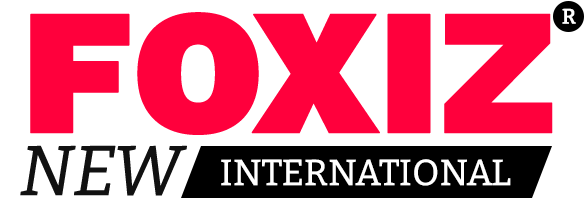I know this is going to sound boring, but I promise you it’s more intriguing (and crucial) than you would think. We’re discussing assurance and insurance, two terms that sound similar but really mean quite different things and could have far-reaching consequences for your financial situation and quality of life.
“Oh, another dull financial subject that I’ll likely forget about in five minutes.” I can almost hear you saying it. But listen up! If you want to save money, have peace of mind, and come across as really cultured at your next dinner party, then you should know the difference between assurance and insurance. Now, we’ll explain it in a way that won’t make you feel sleepy.
What is Insurance?

First, we’ll go over the more common word: insurance. Insuring your vehicle, house, health, or even your pet goldfish (yep, it’s a real thing!) is something that almost everyone has done at some point in their lives.
Purchasing insurance is a great strategy to safeguard your finances from any unforeseen financial setbacks that may occur. In case life decides to surprise you financially, it’s like having a safety net. An insurance company promises to compensate you in the event that specific bad things happen, in exchange for the regular premiums you pay.
What makes insurance so important is that it is based on “what if” situations. Worst case scenario: an accident totals your car. Imagine your home was engulfed in flames. What if you try to do that dancing challenge from TikTok and end up breaking your leg? (Hint: The last one might not be a good choice.)
The purpose of insurance is to protect policyholders from monetary loss due to unforeseen circumstances. The key factor is the phrase “might.” Risks might happen or they might not, and you’re paying to be protected against both.
Some common types of insurance include:
- Auto insurance
- Homeowners or renters insurance
- Health insurance
- Life insurance
- Travel insurance
- Pet insurance
Although they cover different kinds of dangers, the underlying idea is the same: you’re giving the insurance company financial responsibility for any losses that may occur in the future.
How Insurance Works
The idea of risk pooling is the foundation of insurance. By joining forces with other policyholders, you essentially reduce your individual risk when you purchase insurance. The insurer utilises the pooled funds from everyone’s premiums to pay out claims. Since not everyone will have an immediate need to file a claim, the hope is that the combined funds will be sufficient to cover those who do.
Consider a health insurance coverage for which the monthly premium is £500. Your health insurance will pay for the majority of your £10,000 medical bill (after your deductible and co-pays). Instead of you having to shoulder all of the financial risk, the insurance will do it.
If you remain healthy, though, your premium payments will remain in the pool and be used to cover those who are less fortunate. Since it’s improbable that everyone will suffer a huge setback simultaneously, this strategy is effective.
What is Assurance?

Now, we will discuss assurance. Here we go into some more tricky territory, but bear with me, I assure you it will all make sense in the end!
While both assurance and insurance offer financial protection, the key distinction is that assurance addresses inevitable events, while insurance focusses on less certain occurrences. Consider not “what if,” but “when.”
Life assurance, frequently mistaken for life insurance, is the most prevalent type of guarantee. One key distinction is that life insurance typically pays out in the event of your death within a predetermined time frame, rather than all at once. Conversely, life assurance provides coverage throughout your entire life and pays out regardless of when you pass away.
Assurance policies often have an investment component as well. Part of your premium goes towards the eventual payout, and part of it is invested to build up a cash value over time. This means that assurance policies can serve as a form of savings or investment, not just protection.
Some examples of assurance products include:
- Whole life assurance
- Universal life assurance
- Endowment policies
These products are designed to provide both protection and a savings element, making them more complex than straightforward insurance policies.
How Assurance Works
Giving a promise is at the heart of assurance, especially when it comes to matters of the heart. Purchasing life assurance is more than simply making plans for the unexpected; it’s about preparing for the inevitable. The rarity of the occurrence is the defining feature. Life assurance ensures a payout in the event of one’s death, which is inevitable for everyone.
A portion of your premiums goes towards the coverage (the death benefit) in a normal life assurance policy, while another piece is invested by the insurance company. You may be able to borrow against or withdraw funds from the investment part as it grows over time in some policies. Because it may both protect and invest, assurance is a special and useful financial tool.
Key Differences Between Insurance and Assurance

The level of confidence surrounding the covered occurrence is the key differentiator between assurance and insurance. Accidents, house fires, and theft are all examples of unforeseen and potentially disastrous incidents that insurance is meant to cover. However, with life assurance, we are talking about something that is absolutely going to happen, like death.
Time is another important factor. Term life insurance, for example, covers a person for twenty years, while auto insurance normally covers a year. On the other hand, assurance plans typically offer coverage that lasts a person’s entire life, protecting them from any financial setbacks.
Both of these financial products have different payout structures. The insured event must occur within the policy period for the insurance to pay out. A home insurance policy, for instance, will pay out in the event of a covered loss only if the policy is still valid. Insurance, on the other hand, pays out in the end regardless of when the incident happens.
There is an investing component, which is another notable difference. A key difference between assurance and insurance is the inclusion of an investment component in the latter. You might think of it as a savings or investment vehicle because a portion of your premium goes towards the accumulation of cash value.
The cost structure of these products also differs:
- Insurance: Generally has lower premiums, as the risk is shared among many policyholders.
- Assurance: Usually comes with higher premiums, reflecting the guaranteed payout.
Finally, assurance and insurance are different in the way they transfer risk. To safeguard yourself from possible future losses, insurance shifts the risk of financial hardship to the insurer. However, with assurance, you or your beneficiaries can rest assured that you will receive financial benefit regardless of the occurrence of loss.
In order to make educated judgements regarding your financial protection plan, it is essential that you understand these distinctions. Whether you should invest in insurance or assurance is a personal decision based on your financial situation, objectives, and aspirations.
Why Does This Difference Matter?

“Alright, I see the distinction, but why does it matter?” you may be asking yourself now. Excellent inquiry! Your ability to plan and make decisions regarding your finances will be much improved if you are familiar with the difference between assurance and insurance.
Here’s why it matters:
- Financial Protection Strategy: You can better meet your demands with the proper items when you understand the difference. Insurance could be a good option if you want to safeguard yourself from certain dangers. Guaranteed coverage with an added savings component could be better suited to your needs with assurance.
- Budgeting: Insurance and assurance products often have different cost structures. Understanding this can help you budget more effectively for your protection needs.
- Long-term Financial Planning: Your long-term financial strategy can benefit from the investing components of assurance packages. They’re not only for safety; they can help you amass wealth as time goes on.
- Estate Planning: One valuable instrument for estate planning is life assurance, which guarantees a payout to your beneficiaries.
- Tax Implications: The tax treatment of insurance and assurance goods could vary from country to country. Making better tax-efficient decisions is easier when you know the difference.
- Peace of Mind: Gaining a clear understanding of your coverage and limitations can alleviate anxiety and empower you to make well-informed decisions regarding your financial security.
Choosing Between Insurance and Assurance

If you want to be a good financial planner, you need to know the difference between assurance and insurance. Your unique requirements, long-term financial objectives, and desired amount of safety net for loved ones should guide your product selection.
So, how do you decide whether you need insurance, assurance, or both? Here are some factors to consider:
When to Choose Insurance:
- Temporary Coverage Needs: Insurance may be a good option if you require coverage for a certain duration, such when you’re child-rearing or paying off a mortgage.
- Risk Management: In the event of an unforeseen event, such as an accident, illness, or damage to one’s property, insurance is a great way to protect one’s financial resources.
- Cost Considerations: Insurance could be a more cost-effective option if money is tight, particularly for temporary requirements.
When to Choose Assurance:
- Long-term Financial Security: With certainty, you may be assured that you will receive a monetary advantage at some point in the future.
- Estate Planning: To make sure your loved ones get money when you die, life assurance is an important part of an estate plan.
- Investment Opportunities: An assurance policy that also includes an investing component can be a suitable choice if you are looking for a solution that integrates insurance and investment.
Practical Examples: Insurance vs. Assurance in Real Life

Here are a number of examples from the actual world to help illustrate the distinctions and their implications:
Scenario 1: Protecting Your Car
Naturally, you want to keep your shiny new car safe after you’ve just spent a pretty penny on it. A vehicle insurance coverage protects you in the event of an accident, theft, fire, or other covered peril. Your insurance will pay to fix or replace your vehicle if it is stolen or destroyed in an accident. You will not get any money out of your insurance if your vehicle does not incur any damage while the policy is in effect. An insurance classic, right here.
Scenario 2: Providing for Your Family After Your Passing
Take a new situation into consideration. Making ensuring your loved ones have enough money to live on after you pass away is a top priority. A life assurance policy is something you’ve decided to buy. Upon your demise, this policy will ensure that your beneficiaries receive a payout. Your loved ones will get a reward regardless of how many more years you live. Giving confidence in a world full of uncertainty—that is assurance.
The Bottom Line
We’ve gone over a lot of material, but I think you get the idea of what assurance and insurance are now. Despite their superficial similarities, these concepts have distinct functions and can impact your finances in various ways.
Keep in mind that when it comes to safeguarding your finances, there is no silver bullet. Your greatest buddy or second cousin thrice removed may not always have the same needs as you. The key is to take stock of your individual situation, objectives, and requirements.
Get in touch with a financial advisor without delay if you’re feeling confused or overwhelmed (and who wouldn’t be after exploring the exciting world of financial products?). They are well-versed in the intricacies and can assist you in developing a personalised plan for protection.
While we wait, congrats for making the effort to educate yourself on this crucial subject. You have progressed to the next level of financial security expertise! Plus, what the hey? Perhaps you will be the one to enlighten your friends on the intricacies of assurance and insurance at your next social event. Keep in mind that you don’t want to become cocky with all that fresh information, alright?
Stay protected, stay assured, and most importantly, stay awesome!










